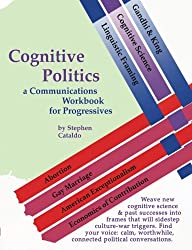Someone asked about debunking their Mom's belief in chemtrails. This blog explores talking with family who believe false ideas generated by communities that welcome them:
I think direct debunkings often miss the psychology of why people believe things like this. I find my liberal and science-minded friends take to fact-based counter-approaches to all the beliefs people pick up when they are feeling disempowered or lonely or overwhelmed by modern life — and having people tell you you are stupid (it's only worse when they are right) worsens the underlying and real sense of disempowerment and broken communities.
For your Mom? You might try "I think the chemtrails conspiracy theories are nuts but I love you anyway." If you want to "debunk" theories that come from isolation and disempowerment, then help people realize that they are seeking community, help them realize they don't believe these non-science things but that they enjoy the community, and try to get them to see it with clarity without asking them to leave a community full of nice people. Especially, don't ask them to choose between nice friends and rude debunkers: you will lose, and make things worse.
In other words: some of my friends might be arguing in all "seriousness" whether Batman or Godzilla would win a fight. Comic worlds are a place of community and escape... it's ok that folks get lost in their imagination and friendships around it for a while. The way to de-cult the cults, imho, is more to get people to stop taking the "facts" seriously.
Don't argue about chemtrails: Ask your mom which of her friends also believe in chemtrails, and whether she has good connections with them about chemtrails. Help her, slowly, become conscious of what she is actually doing, what she is actually getting out of her system with the scientifically-crazy theories. Listen.
You might try talking about your sillier hobbies that bring you joy and community when she talks about her unfortunately-less-light-hearted hobbies. Stay connected. Remember that the goal of conspiracy-thinking organizers and cult leaders at the top levels is to tear our communities apart: keeping communities together is fighting fire with fire; debunking is secondary.
If you want to debunk the facts rather than help someone navigate the real needs in our hyper-commercialized and isolating world — (I do. Do you? That always seems to be my go-to, but I'm not sure I've chosen my goals well.) — then I'd say don't start with chemtrails. Go to an aerospace museum together and learn about flight in general, with "chemtrails" being one piece of knowledge you accumulate as an experience that is empowering and not purely "bash her favorite ideas."
If you want to debunk the facts rather than help someone navigate the real needs in our hyper-commercialized and isolating world — you might bring up the idea of asking a pilot or flight attendant next time you fly together. For a lot of people, part of their mind can see an idea is false, and part of their mind does not. If you have Trump supporters or Q supporters in your life, you probably can't get rich betting them that Trump will not come back by August. People who fly can't really hold their vast conspiracy theories together alongside the obviously friendly and bored airline staff. Mix curiosity and questions to get people talking beyond their usual talking points, ask questions that get them thinking, and let people debunk their own bunk.


